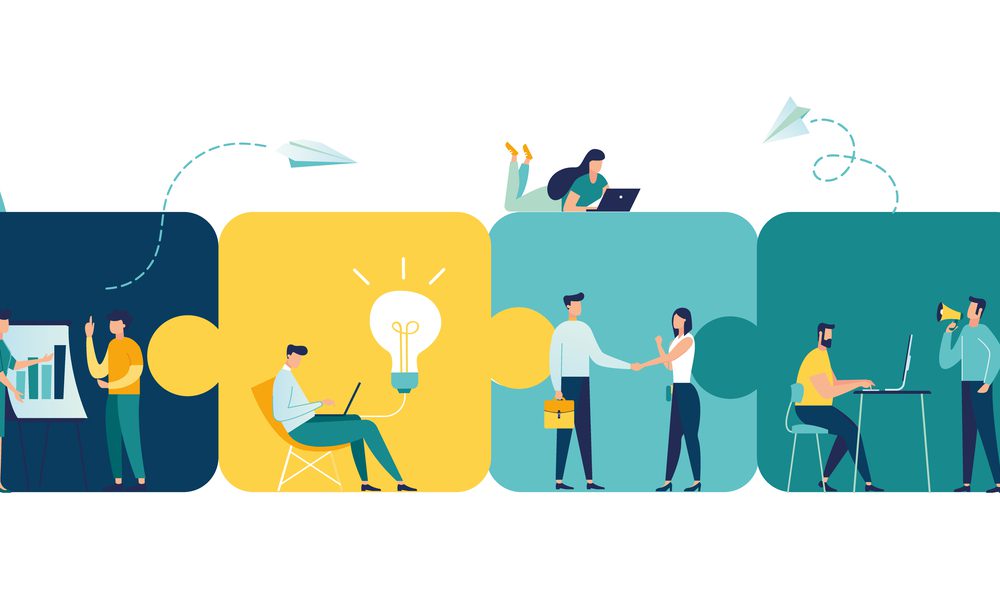Scaling Empathy: How neuroscience-based technology can reveal hidden personalities and create high performing teams
- 5 Min Read
We haven’t changed since our hunter-gatherer days, but our world has. How might neuroscience-based technology hold the answer to making the most of our minds in the workplace?
- Author: Katharina Kuehn
- Date published: Feb 14, 2020
- Categories

“The biggest deficit that we have in our society and in the world right now is an empathy deficit. We are in great need of people being able to stand in somebody else’s shoes and see the world through their eyes.” – Barack Obama
Obama was spot on when he identified this in 2008. We officially have an empathy crisis in the world today. Amidst all the information overload and war for our attention, people are not only struggling to understand others but are increasingly struggling to even understand themselves. The latest research that I have conducted into personality patterns shows that 79% of people regularly struggle to make sense of their own feelings.
To a neuroscientist, this is not a surprise: We have long known that about 95% of our daily decision making happens below the radar of our conscious minds, on an emotional, intuitive level. Although we all like to think of ourselves as Robocop-like, rational decision makers, we’re not quite so rational. Most of the time we’re not aware of what is really going on and what the true drivers of our intentions, decisions and behaviors are. This is because they reside in the part of our brain that’s not accessible to language and analytical, conscious thought – our limbic system (our center of emotion, memory and intuition).
To make things harder, we’re more distracted, absorbed and fast-moving than ever (much of this, good and bad, driven by technology), which has made us more impatient and less empathetic with ourselves and others.
If it’s any consolation – you’re not alone. We all find it easier to understand and appreciate people that are just like ourselves. We’re all wearing a specific ‘reality filter’, determined by our own personality, emotional drivers, and unconscious psychological needs. Although there are certain characteristics that are universal and part of the general human design (such as a need for connection, recognition and self-efficacy), there are other characteristics that strongly influence how we see the world and how we behave as individuals. These are the result of our unique personalities.
And why is this a problem? Well, if we can’t understand ourselves, we can’t even hope to understand others.
What’s more is what we’re seeing en masse today (in business as well as politics): Those who understand us better than we understand ourselves have the power to direct how we make our decisions. Those who are more aware, and more tuned into our own emotions than we are ourselves, choose for us what we do. Whether that’s selling a product, an idea or an ideology.
In the past, this understanding rested in the brains and hands of a few highly trained experts in neuroscience and psychoanalysis. These experts had to spend face-to-face time to uncover those insights and equip people with a better working knowledge of understanding themselves and the people around them.
For years I’ve been wondering how to scale these insights in a way that would bring about more empathy and more self-awareness, and with that, a more constructive and unified dialogue. With ourselves, our loved ones and the people we find hardest to empathise with. Because that’s what’s needed for a functioning democracy, family or team at work.
So, in mid-2018, business builder Tim Mullen, fellow entrepreneur John Winning, and I, started collaborating on a mission to scale empathy for the workplace. We combined John’s obsession with culture to deliver strong business results, Tim‘s expertise with team engagement technologies and my 10+ years of research on human nature and personality to build this knowledge into a piece of technology, called Heelix.
Heelix makes use of real-time feedback and advancements in neuroscientific research to personalise the experience for each person in their role, focusing on the things that matter most to them. It makes empathy scalable, so to speak, and empowers ‘normal’ human beings to not only understand themselves better, but to also understand the people around them. To have better conversations and ultimately create better teams at work.
At the Winning Group, Heelix has allowed us to stay on top of how our people are feeling and make changes based on what we’re seeing in the data; from management changes to how we celebrate our wins. With the right questions being asked, we can take the correct course of action – most often in a proactive, rather than reactive, way. We believe this technology will transform the HR space.
The world has shifted, but our original natures haven’t. Ever since humanity’s hunter-gatherer days, different personalities have had a vital role to play, not only in the survival of our species, but also the growth of our species.
If we want to take a step towards solving this empathy crisis, we need to apply that same principle to our everyday lives, starting with the HR space. After all, like those tribes, a business is just a group of people with different personalities, working toward a common goal. If we can understand these personalities, we can leverage the strengths of each individual, maximising their impact and creating the dream scenario – a whole that is greater than the sum of its parts. A high performing, highly connected team.
If you’d like to learn more on how we are scaling empathy using neuroscience, come and chat with the Heelix team who will be at HRD US Summit in Boston on 18 March or book in a chat with them here.
Katharina Kuehn is one of Asia Pacific’s leading neuroscientists, Chief Strategy Officer of the Winning Group and a member of the Heelix advisory board.








